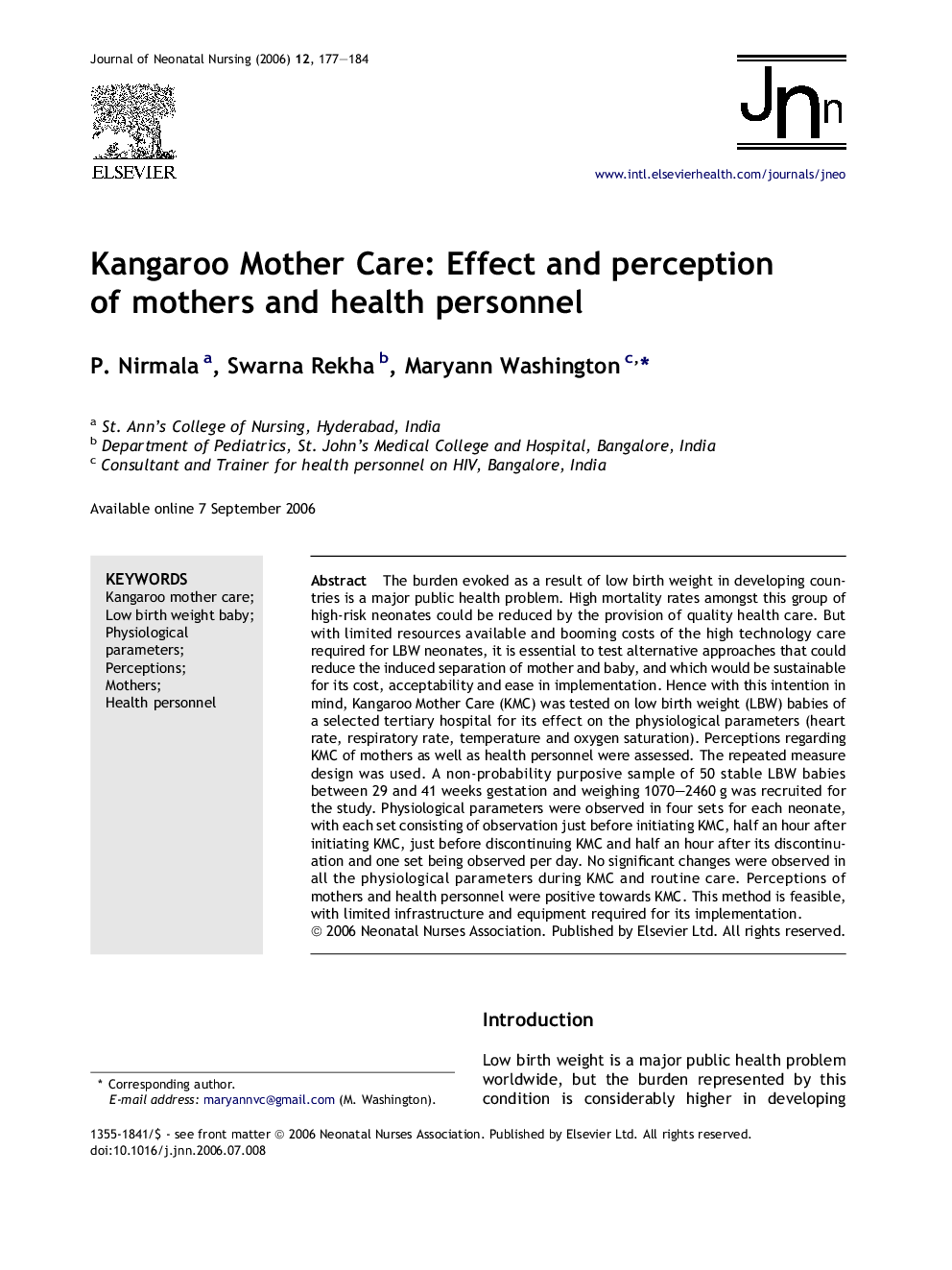| Article ID | Journal | Published Year | Pages | File Type |
|---|---|---|---|---|
| 2632141 | Journal of Neonatal Nursing | 2006 | 8 Pages |
The burden evoked as a result of low birth weight in developing countries is a major public health problem. High mortality rates amongst this group of high-risk neonates could be reduced by the provision of quality health care. But with limited resources available and booming costs of the high technology care required for LBW neonates, it is essential to test alternative approaches that could reduce the induced separation of mother and baby, and which would be sustainable for its cost, acceptability and ease in implementation. Hence with this intention in mind, Kangaroo Mother Care (KMC) was tested on low birth weight (LBW) babies of a selected tertiary hospital for its effect on the physiological parameters (heart rate, respiratory rate, temperature and oxygen saturation). Perceptions regarding KMC of mothers as well as health personnel were assessed. The repeated measure design was used. A non-probability purposive sample of 50 stable LBW babies between 29 and 41 weeks gestation and weighing 1070–2460 g was recruited for the study. Physiological parameters were observed in four sets for each neonate, with each set consisting of observation just before initiating KMC, half an hour after initiating KMC, just before discontinuing KMC and half an hour after its discontinuation and one set being observed per day. No significant changes were observed in all the physiological parameters during KMC and routine care. Perceptions of mothers and health personnel were positive towards KMC. This method is feasible, with limited infrastructure and equipment required for its implementation.
